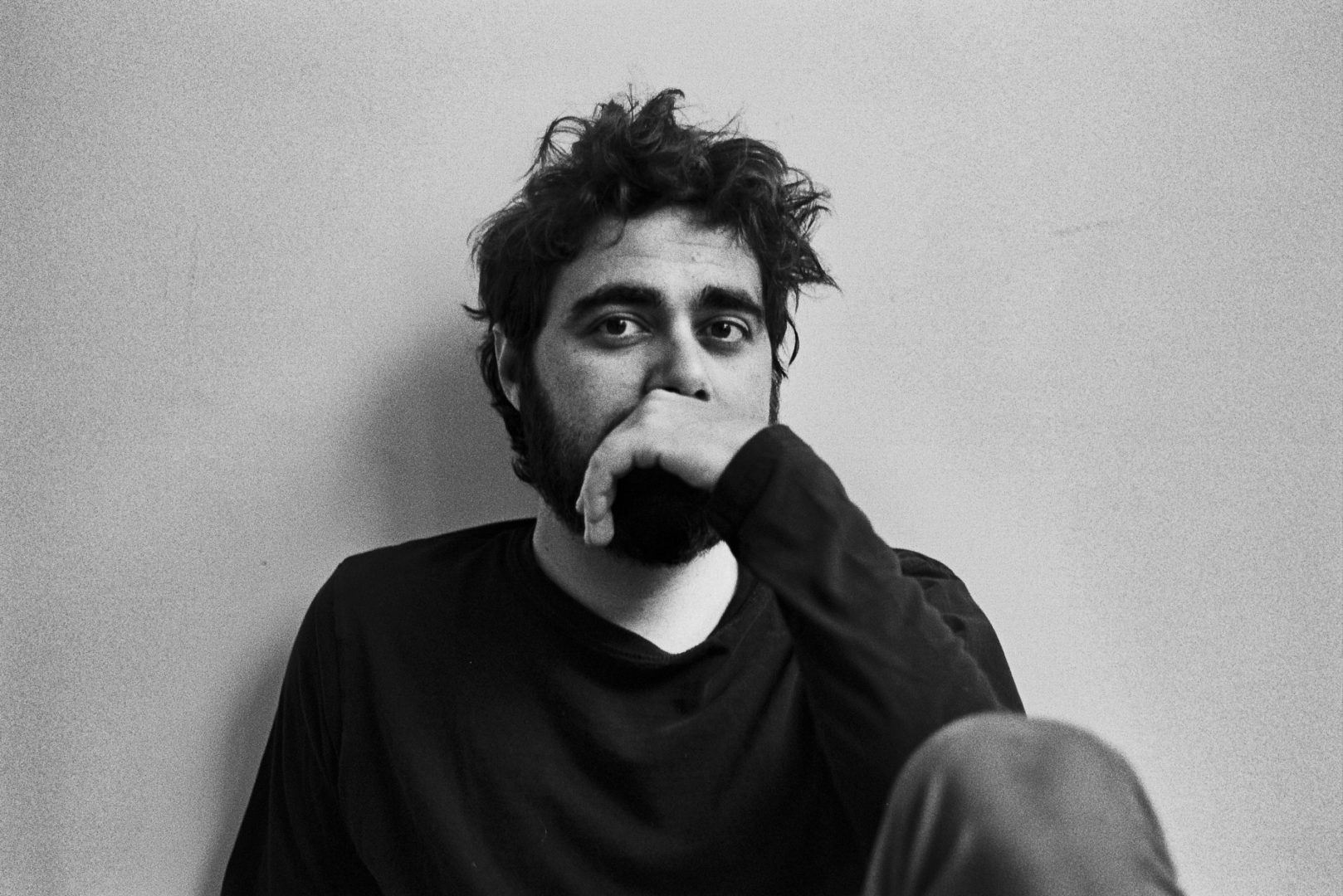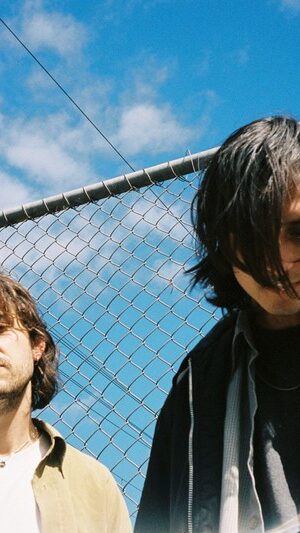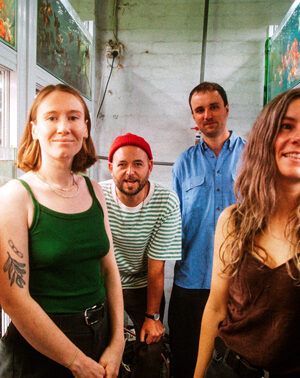TMR TALKS TO...
FEDERICO ALBANESE
Today we are proud to premiere renowned neo-classical composer Federico Albanese’s new single ‘Mauer Blues’. The gorgeous cut is taken from his third studio album By The Deep Sea, which is due out on 23rd February via Neue Meister. A taster of what is yet to come, ‘Mauer Blues’ is an atmospheric piano track which layers of dark and brooding synths, strings and electronic pads woven together to form a piece reminiscent of Ólafur Arnalds’ work for UK TV series, Broadchurch. Almost all of the tracks on Albanese’s new album started as improvisations while he was on tour. Later, he developed them into richly orchestrated pieces, with guest performances from long-time collaborators ILLAY and Arthur Horning (both on cello), whilst Simon Goff takes the sonorous violin parts. Central to the album, however, is Albanese’s delicate piano playing, which is accompanied by synthesisers, Hammond organ, electric and acoustic guitars, and field recordings. Speaking about the album, Albanese says: “All albums are personal in a way, but By The Deep Sea really tells the story of an inner space buried in a deep self.” We caught up with Albanese to dig a little deeper into this sense of the ‘deep self’, discovering along the way how influences as diverse as post-punk and rural Italy helped inspire this gorgeous record. *** TMR: By The Deep Sea is your third studio album to date, and your second with label partners Neue Meister – can you tell us a bit about how it came to fruition and how the process of it differed from your first two releases? By The Deep Sea is, by all means, the most personal record I did so far. It really tells the story of my life and experience over the last couple of years, and talks about all the feelings that comes with it, good or bad. The past 2 albums (especially the second one: The Blue Hour) are in a way concept albums, where all the pieces shaped up following one single idea, and trying to describe that idea with notes. The pieces of the new album are tales of a peculiar experience, thoughts or feelings I tried to translate in music. Somehow it’s less a concept album and more a collection of miniatures, a journey into a deep state. TMR: We’ve heard tale that the first track from By The Deep Sea, ‘682 Steps’ is inspired by the path that runs from your mother’s house to the sea. Was your family home in Italy one that was full of music growing up? I wouldn’t say that. I’m the only musician in the family. I grew up in Milan, and after I moved away, my Mom decided to take leave from the big city, and found a nice small house in the middle of the woods towards the sea on the north Italian coast. Over the years this place became a sort of escape for me too, a place to be quiet and reflective, a place where ideas and thoughts are more accessible. There is a staircase that leads from the house to a giant rock by the sea, and it counts 682 steps. I did that so many times with so many memories related to it, and I felt it was the right opening for the record. TMR: Which other composers, if any, inspired you on your way to create By The Deep Sea? I’m generally not taking much musical inspiration, especially for this record which came out very spontaneously, out of a need to describe certain things. I was listening a lot to many Italian songwriters and composers though, such as Nino Rota, Lucio Dalla. I guess that inspired me in a way. TMR: You are now based in Berlin – do you find that the space you live in affects the music that you are writing? Berlin is a place where you breathe music and art everywhere. It inspires me all the time, I’m lucky to be here. There is more in this city that any other city I’ve been so far, there is an environment here where things happen with some ease. TMR: What was the hardest track on the album to write and why? No track was hard to write really, but some needed much time to develop. For example, the piece ‘Mauer Blues’ has a very long story. It all started in 2013 when I was writing my first album The Houseboat and The Moon. There is a piece inside it called ‘The Sudden Sympathy’, on which I struggled a lot to find the right ending. When I finally made it, and closed the piece with just one simple chord, I liked that chord so much that I wanted to write an entire new piece around it, but it didn’t happen back then. I tried again with the next album, didn’t happen either. And then it worked out for this one and ‘Mauer Blues’ was born. I named it like this because is a piece that reminds me of when I started all this moving to Berlin and trying to find my own voice. TMR: Listening to By The Deep Sea, it feels incredibly cinematic, and over the years you’ve scored numerous projects for picture including ‘Pick Up’, ‘Fabulae Romane’ and ‘Our Girl’ – how does the process of writing for picture differentiate from that of writing a full record? It’s surely different but equally fascinating. Writing your own albums is a full creative process which allows you to be completely free, sometimes too much, and therefore you have to enclose your creative process into certain limits and decide for yourself what is it you want to communicate, talk about. When you write for films, or theatre, ballet, you pledge yourself for someone else’s vision, you are at the service of someone else’s idea. When there is a match between the music and the visual part, is just pure magic. I love it. TMR: We love the quote you gave about how “Music is the vehicle I’ve chosen to express my deepest feelings, the ones that, even to me, are difficult to understand.” How do you want listeners to feel when they hear By The Deep Sea? I think it is not up to me to decide how someone should feel listening to my music. Sometimes it is very subjective. A piece that represents a positive feeling for me could do the opposite to someone else. What I can say, is that this album tries to reach the deepest part of ourselves. It goes so close to the bottom to almost touch it. It’s a sort of meditation process. TMR: You have a run of live dates coming up around Europe – what can your fans expect from your live performance? I will be playing all the new songs and some of my past works as well. For me, performing live has always been the most important part of it all. I always try to create a connection with the audience and communicate without speaking. When that happens, it is the greatest achievement. And I will try to do the same this time. TMR: We’re lucky enough to have heard snippets from the forthcoming LP, which is out on 23rd February. One of our favourite tracks is ‘Untold’ can you talk to us about the connection between this track and postpunk legend Vini Reilly? Thanks. I was a punk rocker too though years and years ago, and Vini Reilly was one of my long time heroes and source of inspiration - together with all the Wilson’s Factory Records back in the 70s, not only for his music but also for his attitude. ‘Untold’ is a piece that differs from the others, as it’s not piano based but Fender Rhodes, it has been recorded in one take, on a small tape recorder. It’s punk in a way. It was my way to say goodbye to my father, who was also, somehow, a punkrocker. -Holly Manners
Listen



